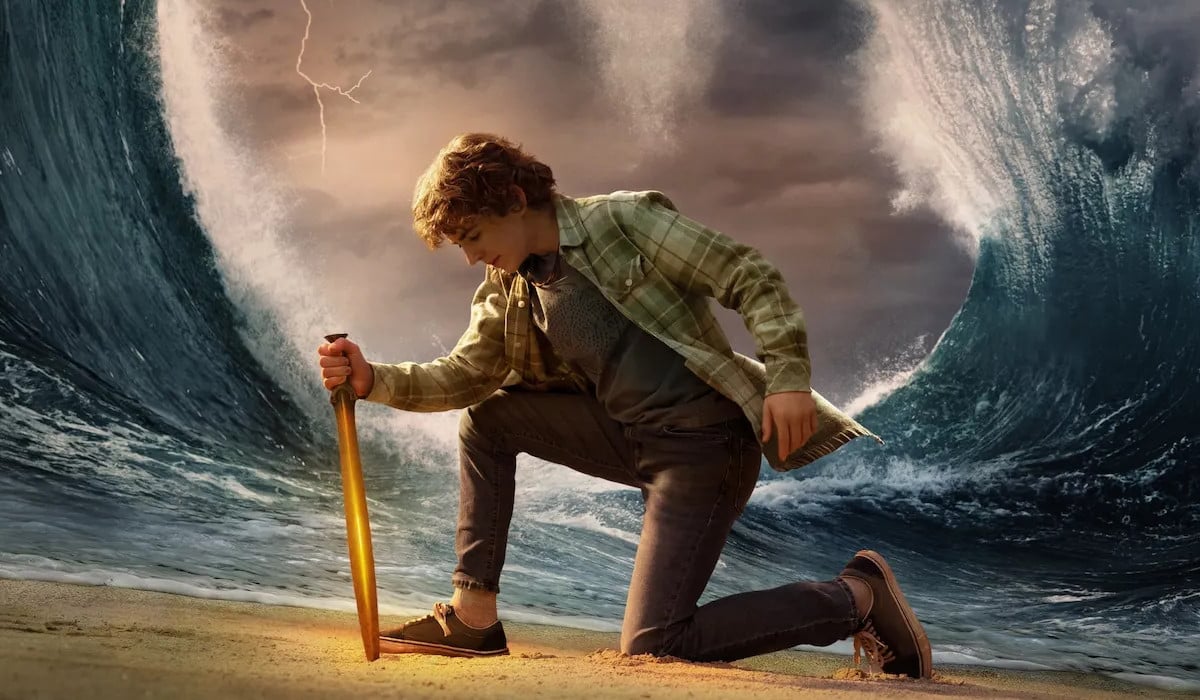Percy Jackson and the Olympians is, on the whole, a triumph. A much better adaptation of the books than the Logan Lerman-led films, Disney+’s Percy Jackson series boasts a fantastic cast, impressive special effects, and an undeniably gripping emotional narrative. As a long-time fan of Riordan’s books, this series has been a dream come true.
And yet, the finale made it abundantly clear that Percy Jackson, like so many of its peers, has been restricted by its meager episode count. Eight episodes of varying length may seem like a lot to tell this story, but as is so succinctly pointed out in the Percy Jackson making-of documentary that is now available on Disney+, the narrative takes this heroic trio from one end of the U.S. to the other, including a trip down to the Underworld and a brief sojourn to the top of the Empire State building. There is a lot of ground to cover.
**Spoilers ahead for the season finale of Percy Jackson and the Olympians!**
Now, I’m not saying that this adaptation was obligated to bring every scene from the Percy Jackson and the Lightning Thief book to the small screen. That would be impossible. But the season finale, titled “The Prophecy Comes True,” handles several major story moments: Percy’s epic sword fight with Ares, his confrontation with Zeus on Olympus, meeting his dad for the first time, finding out the truth about Luke’s betrayal, and his reunion with his mother, recently returned from the Underworld. All of this happens in less than 40 minutes.
The way they handled all of these scenes works. The late Lance Reddick’s portrayal of Zeus was calmly, terrifyingly powerful, Percy’s first conversation with Poseidon was emotionally overwhelming and quite possibly my favorite scene in the entire series (Toby Stephens was a brilliant bit of casting), and Percy and Luke’s confrontation dug deep into their friendship. I loved all of it. I just wish we’d had more time.
Percy’s fight with Ares and his trip to Olympus would have provided more than enough excitement for one episode. The final episode could have subsequently covered Luke’s betrayal and Percy’s reunion with his mom. Just one more episode would have given so many of the show’s emotional scenes more time to breathe while providing the epic fantasy sequences with more time to make an impact. The Lotus Hotel and Casino journey felt similarly short-changed; there’s no real sense that our heroes have lost a significant amount of time while there because the entire ordeal was over before we knew it.
Why are all these streaming shows so short?
Percy Jackson and the Olympians is far from the only series affected by a short episode run. So many streaming originals, especially those within the realm of fantasy and sci-fi, are restricted by these shorter season lengths. We’ve gone from 13-episode seasons, like Netflix’s Marvel shows, to 10, eight, six, and even five-episode seasons, as was the case with Disney+’s Echo. Budgets are undoubtedly a concern, but it must be possible to find a balance between movie-level budgets (Percy Jackson reportedly cost $100 million; Marvel’s Secret Invasion, which had only six episodes, reportedly exceeded $200 million) and making longer seasons.
Netflix’s live-action One Piece adaptation, for instance, also consists of eight episodes. This worked for season 1—the series covered four separate arcs, with two episodes dedicated to each. But One Piece‘s next major arc, the Arabasta arc, will need a lot more than two episodes if it wants to work. I’d argue it even needs more than eight episodes to be fully realized. And why shouldn’t Netflix be able to produce a slightly longer season for one of its biggest successes? Why wouldn’t it want to capitalize on the audience’s goodwill, especially now that they’ve decided splitting these already short seasons in two is a good idea?
In 2023, a licensing deal paid off big time for Netflix—USA Network’s legal drama Suits, which ran for eight seasons and produced 134 episodes, was listed by Nielsen as the most-streamed show in 2023. It was followed by other long-term network shows, including NCIS, Grey’s Anatomy, Gilmore Girls, Friends, and Supernatural. One may attribute this to the fact that all of these shows produced more than 100 episodes, and as such, they’ll naturally have been viewed for more minutes, but it also speaks to what the consumer wants. People want to watch longer shows. They want to spend time with characters and become deeply involved in their stories.
Shows like Percy Jackson and One Piece have built-in fanbases. Fans will watch however many episodes for as long as they can because they’re already invested, and new viewers will be given more time to fall in love with these fantastical worlds and characters, too. It’s a win-win. And now that streamers are forcing many of us to watch ads again, aren’t we allowed to expect a little bit more?
(featured image: Disney+)










Published: Feb 1, 2024 01:04 pm